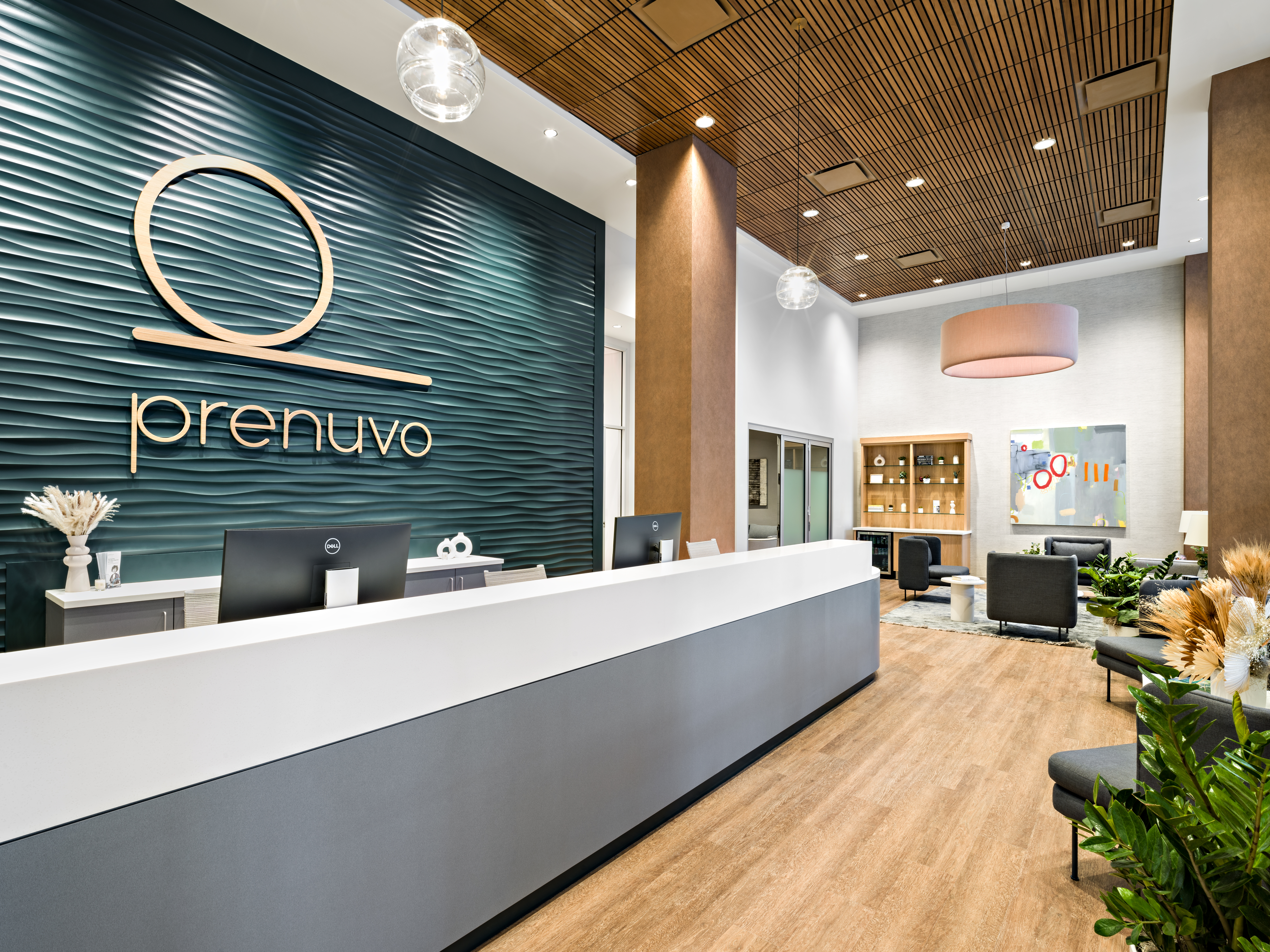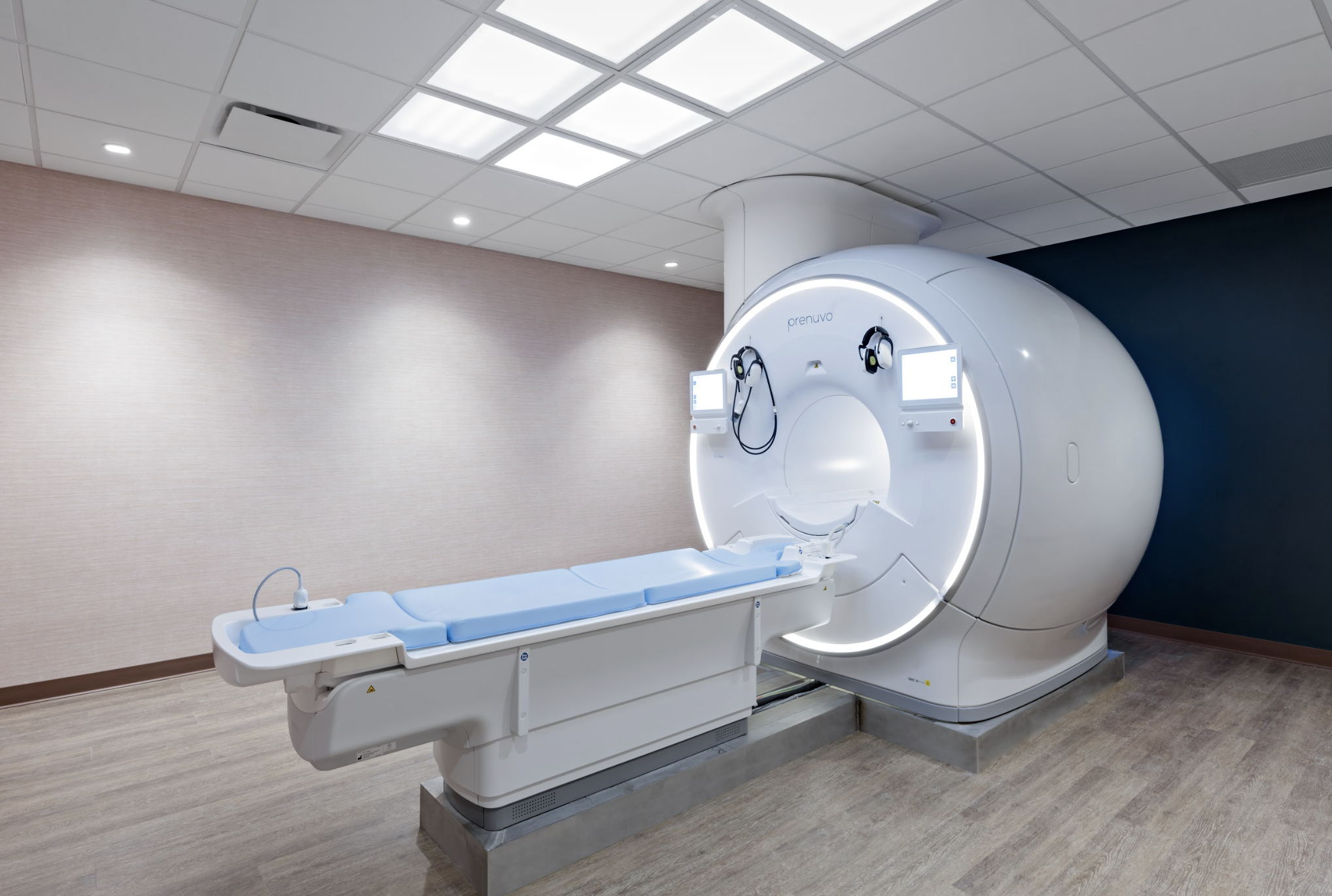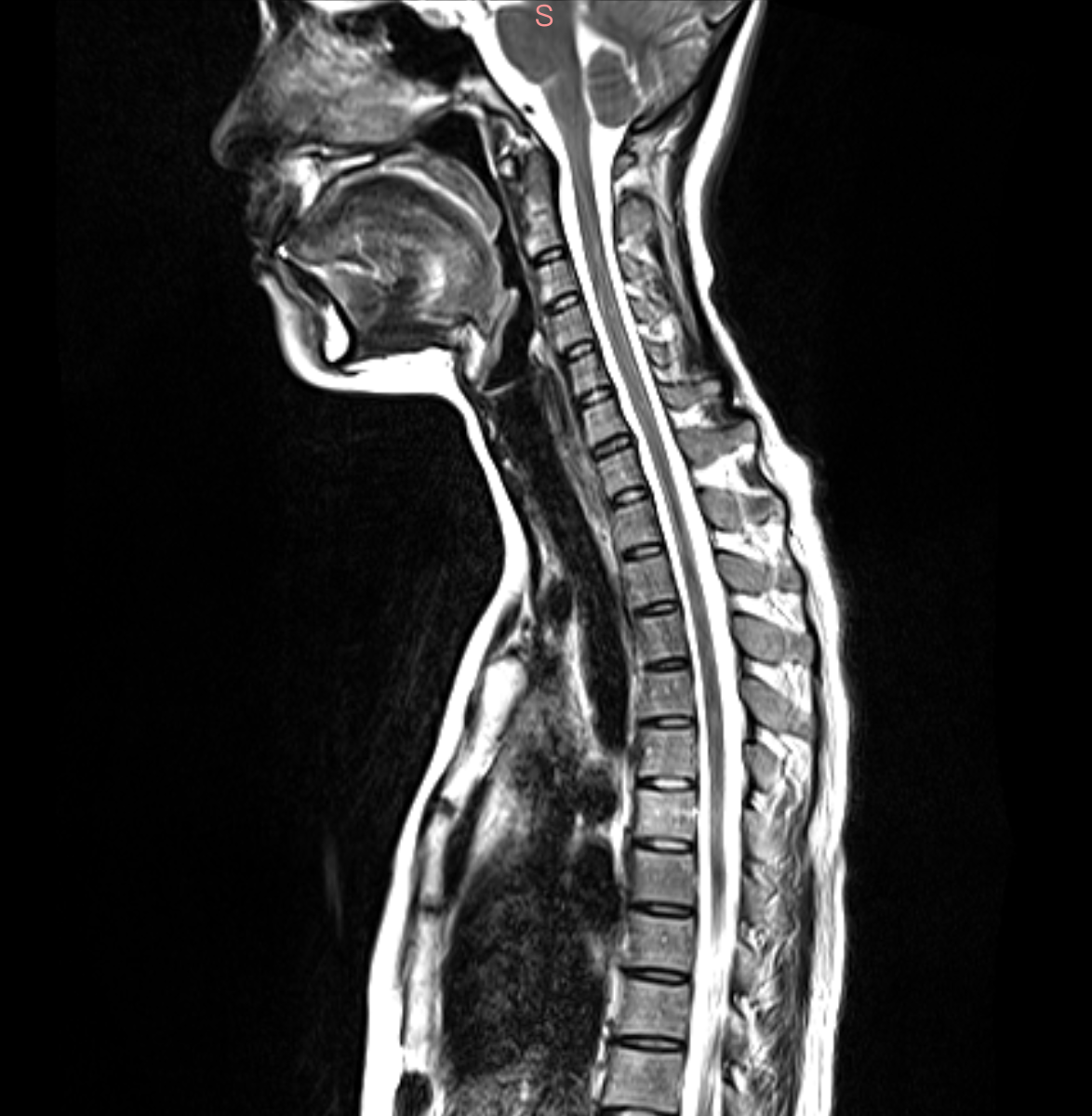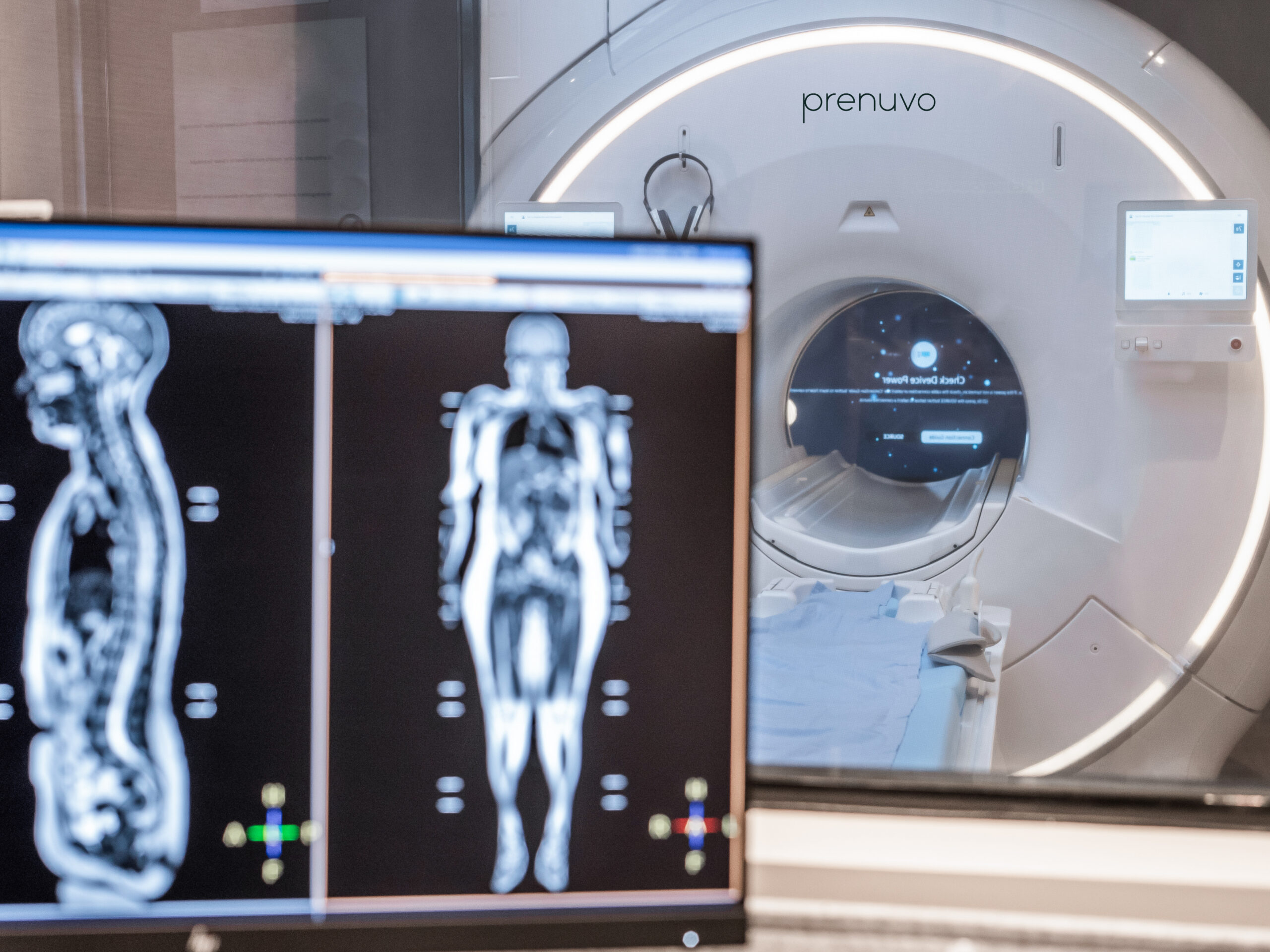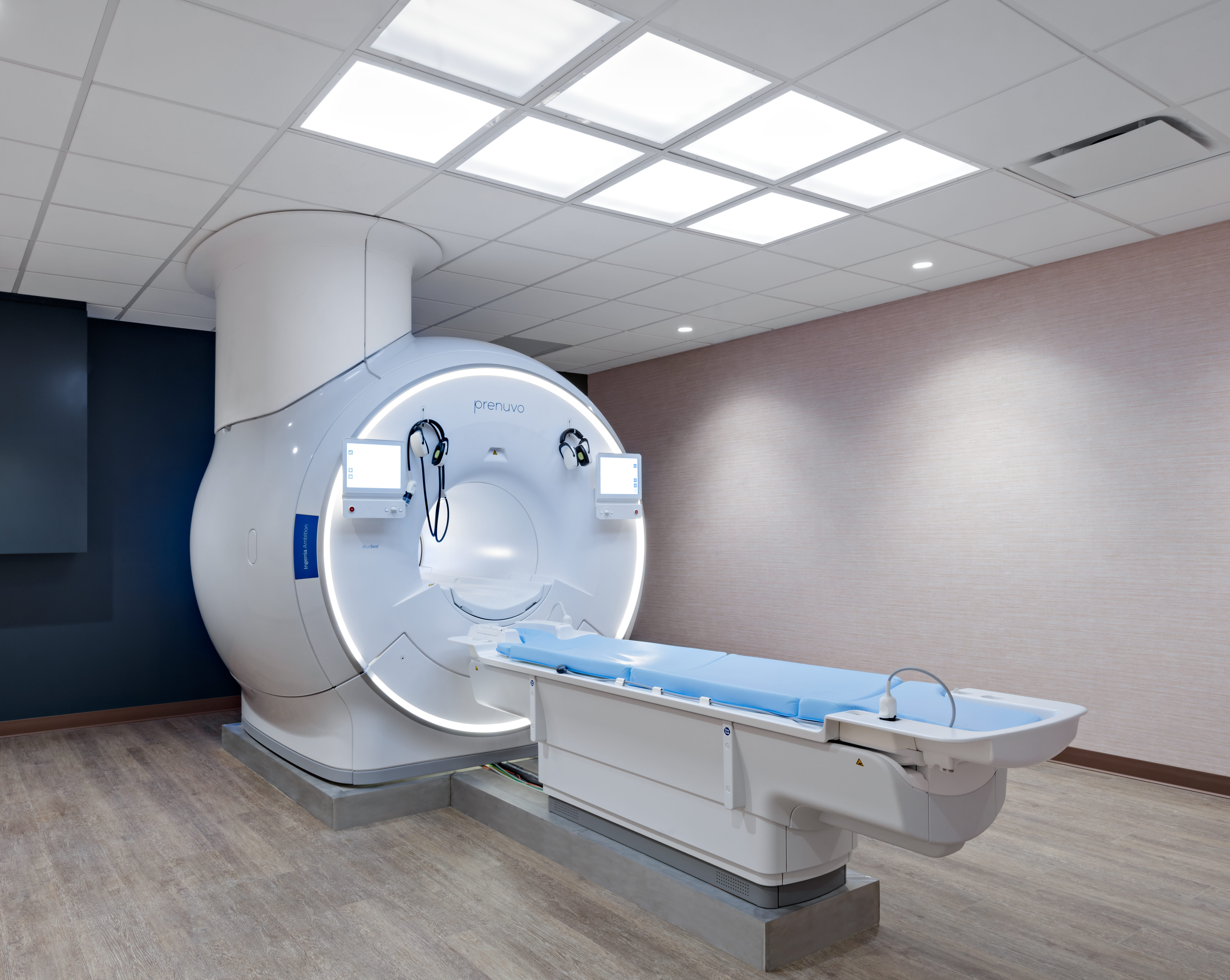Mammography remains the gold standard screening test for breast cancer.
But the Prenuvo scan and the more traditional mammography screening do complement one another. Whereas the MRI scan demonstrates positive results in visualizing breast cancer through dense breast tissue, a mammography scan is capable of picking up on small micro-calcifications in the breast that the MRI scan may overlook.
Although breast calcifications are often noncancerous (benign), certain patterns of calcifications, like tight clusters with irregular shapes and fine appearances may indicate breast cancer or precancerous changes to breast tissue.
 Our peptide therapy program features a wide range of peptides designed to help you regulate biological processes so that you can feel your best.
Our peptide therapy program features a wide range of peptides designed to help you regulate biological processes so that you can feel your best. Our doctor-guided program features nutritional counseling, full-body composition scans & weight loss medication.
Our doctor-guided program features nutritional counseling, full-body composition scans & weight loss medication.



